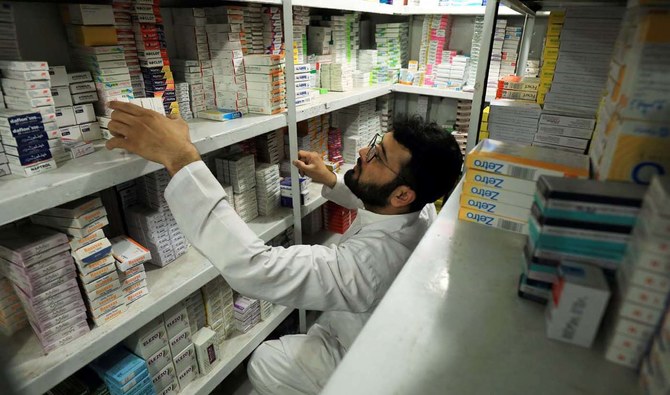KARACHI: Pakistan’s pharmaceutical companies complained on Thursday they found it difficult to import “restricted raw materials” from neighboring India since such consignments remained stuck at the country’s ports for three to four months, awaiting clearance from drug control authorities.
“At present, 50 percent of the raw material comes from India while the remaining is imported from China. Pharma companies face three to four months of delay in clearance of the raw material that arrives from India due to the pace of drug regulatory authorities in Pakistan,” Ayesha Tammy Haq, executive director of Pharma Bureau, a representative body of multinational pharmaceuticals in the country, said while addressing to a news conference in Karachi.
Pakistan banned all imports from India, including the raw material used in the pharmaceutical industry, in August 2019, only a few days after New Delhi annexed the disputed Jammu and Kashmir region with the rest of the Indian union by abrogating Article 370.
In September 2019, however, the government allowed import of essential lifesaving products used in the manufacturing of medicines.
Haq asked the government to look into the issue, saying that long delays were “not only causing financial losses to local companies but also compromising the quality and shelf life of the material.”
Pakistan imports anti-cancer products, vaccines to treat rabies, typhoid, measles, hepatitis B along with products for solid organ transplants and general anesthesia, among other lifesaving items, from India and China.
“India is the only supplier of tuberculosis and snakebite drugs in the world,” she said. “Besides, it is also a cheap source of raw material for us and people must realize that there are things we have to get from that country.”
Pakistani drug makers say the import of raw material and finished products from other countries would significantly increase prices of medicines in the local market, making them almost unaffordable for government and people.
“If we import from the United States, Europe or any other destination, the prices of these products will be 100 times more,” Haq said. “If we have to make cheap medicines — whether you like it or not — we will have to import from India or China.”
“The situation is tense at our borders,” she continued. “In spite of that, let me say that somethings must not be viewed from a conflictual framework. Medicines are definitely among them.”
















